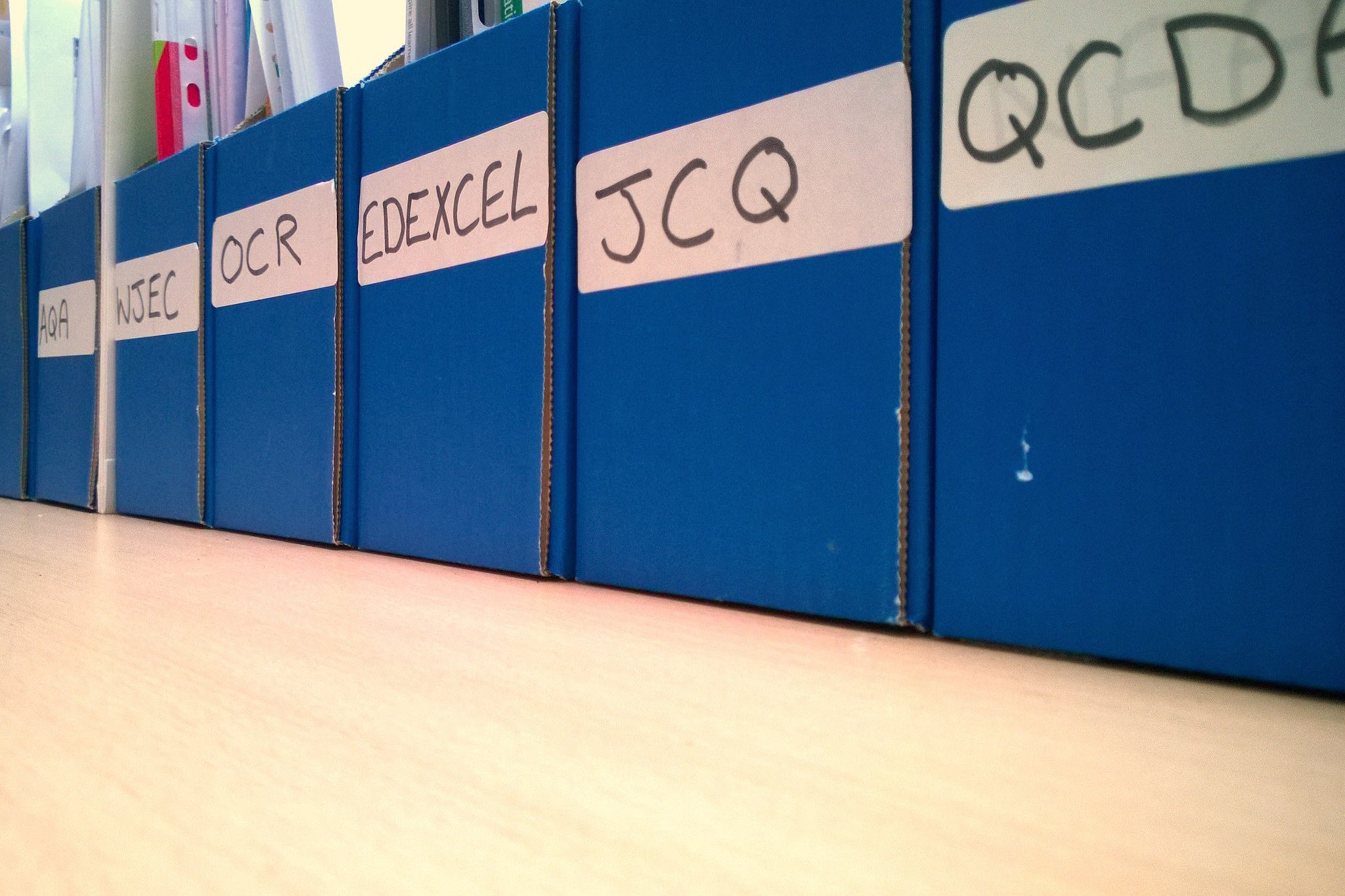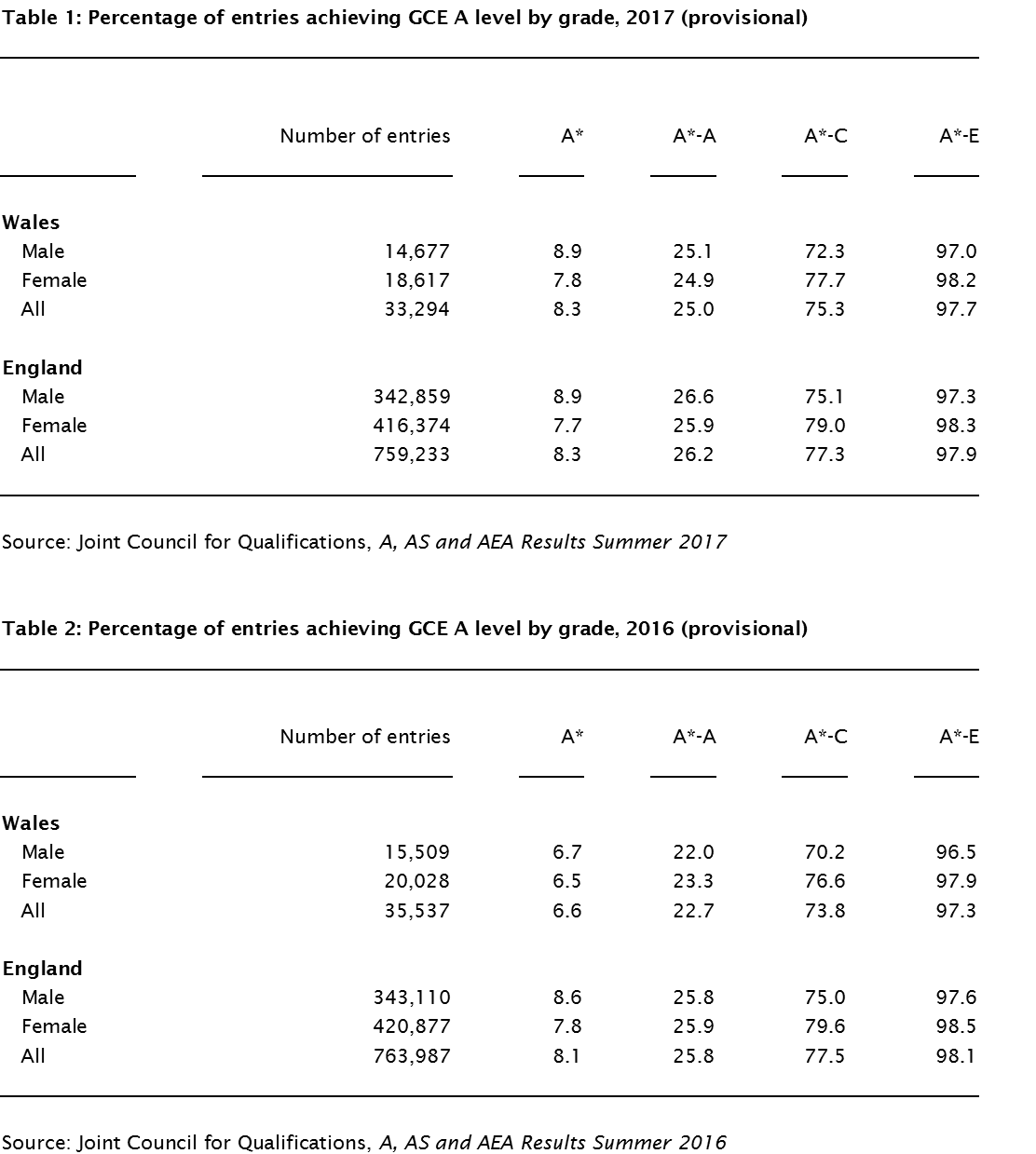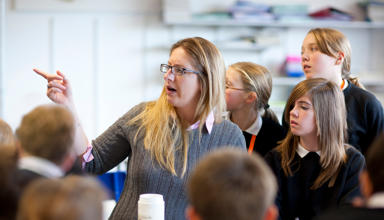A level and Welsh Baccalaureate results
Today is A level results day for learners in Wales, England and Northern Ireland. Each year, the Joint Council for Qualifications (JCQ – a membership organisation comprising the seven largest providers of qualifications in the UK) publish summaries of the results. The JCQ data shows the collective results of the entries of the member awarding bodies.
Changes to A levels
 A and AS levels have been reformed in Wales, England and Northern Ireland. These will be the first results for A levels (in fourteen subjects) since the reforms began being introduced. In Wales, A levels share the same content as A levels in England, where appropriate. They also retain practical or non-examination assessments where they are assessing an important part of the subject, with these assessments contributing towards the final grade. The AS level contributes 40 per cent to the full A level, previously, this was 50 per cent.
A and AS levels have been reformed in Wales, England and Northern Ireland. These will be the first results for A levels (in fourteen subjects) since the reforms began being introduced. In Wales, A levels share the same content as A levels in England, where appropriate. They also retain practical or non-examination assessments where they are assessing an important part of the subject, with these assessments contributing towards the final grade. The AS level contributes 40 per cent to the full A level, previously, this was 50 per cent.
Further information can be seen on the Qualifications Wales website, who have also published an overview of today’s results.
In England, assessment in the reformed qualifications is mainly by exam taken at the end of the course, with other types of assessment used only where they are needed to test essential skills. Also, unlike Wales, AS results will no longer count towards an A level.
These changes will not affect the value of AS and A levels taken in Wales, which will remain comparable to those taken in England and Northern Ireland.
The JCQ states that comparisons between year-on-year outcomes are made more difficult during times of reform. The precise reasons for changes in centre and candidate entry behaviour may not be immediately clear. Even in cases where entry numbers look similar it is not necessarily the case that a similar cohort is taking a subject.
Results
The data in the tables below compare results for 2016 and 2017. This comparison is made based on the data published by JCQ on A level results day in 2016. Data is provisional representing the position at the time that results are issued. Data is subject to checking before final data at national (Wales), local authority and school level is published.
Comparison between 2016 and 2017
- In Wales, the total number of entries has decreased by 2,243 since 2016;
- In Wales, there have been increases in the percentage of those achieving grades A*. Females increased by 1.3 percentage points, males by 2.2 percentage points and all learners by 1.7 percentage points;
- There have been increases in the percentage of those achieving grades A*-A: 3.1 per cent for males, 1.6 per cent for females and 2.3 per cent for all learners;
- Male learners achieving grades A*-C has increased by 2.1 percentage points while the percentage of females achieving grades A*-C increased by 1.2 percentage points. The percentage of all learners achieving A*-C increased by 1.5 percentage points;
- The overall pass rate (A*-E) for females has increased by 0.3 percentage points. The overall pass rate has increased for males increased by 0.5 percentage points and all learners by 0.4 percentage points.
Males and females
In Wales, in the higher grades (A* and A*-A), males have performed better than females, whereas in grades A*-C and A*-E, females have performed better than males. The same is true in England.
Wales and England
The achievement of females in Wales at grade A* was slightly better than those in England (by 0.1 percentage points), while the percentage of males and all learners in Wales and England achieving grade A* was the same. At all other grades, England achievements were higher than Wales. Tables 1 and 2 show the percentage of entries in all subjects by grade for Wales and England for 2016 and 2017. 
Welsh Baccalaureate
The results of the Welsh Baccalaureate are also published today. The Welsh Baccalaureate (Welsh Bacc) is made up of a new Skills Challenge Certificate and supporting qualifications. The Skills Challenge Certificate assesses skills for further study and employment and comprises four components. Learners need to complete four assessments as part of the Skills Challenge Certificate:
- An Individual Project;
- Enterprise and Employability Challenge;
- Global Citizenship Challenge;
- Community Challenge.
To be awarded the Welsh Bacc, students must achieve the Skills Challenge Certificate and supporting qualifications. The Skills Challenge Certificate can be awarded to a student as a qualification even if a student does not achieve the necessary supporting qualifications to be awarded the Welsh Bacc. This year:
- 94.1 per cent of candidates achieved the Skills Challenge Certificate.
- 77.5 per cent of candidates passed the Advanced Welsh Baccalaureate.
Article by Sian Hughes, National Assembly for Wales Research Service
This post is also available as a print-friendly PDF: A level results in Wales (PDF, 283KB)






